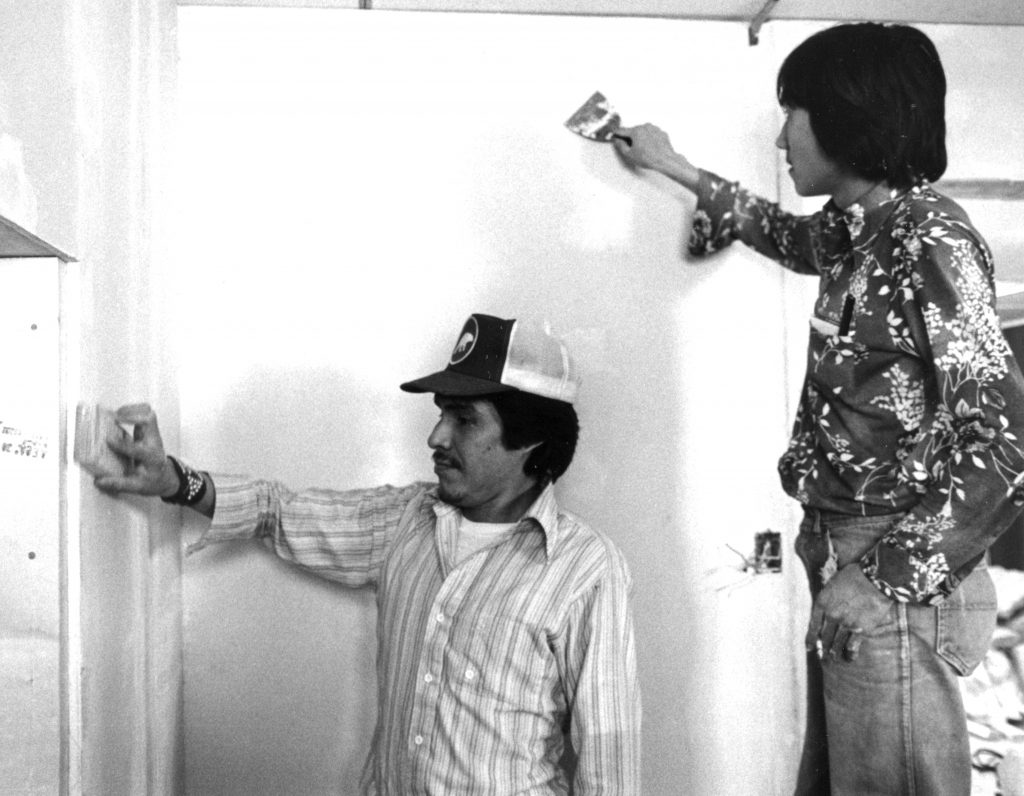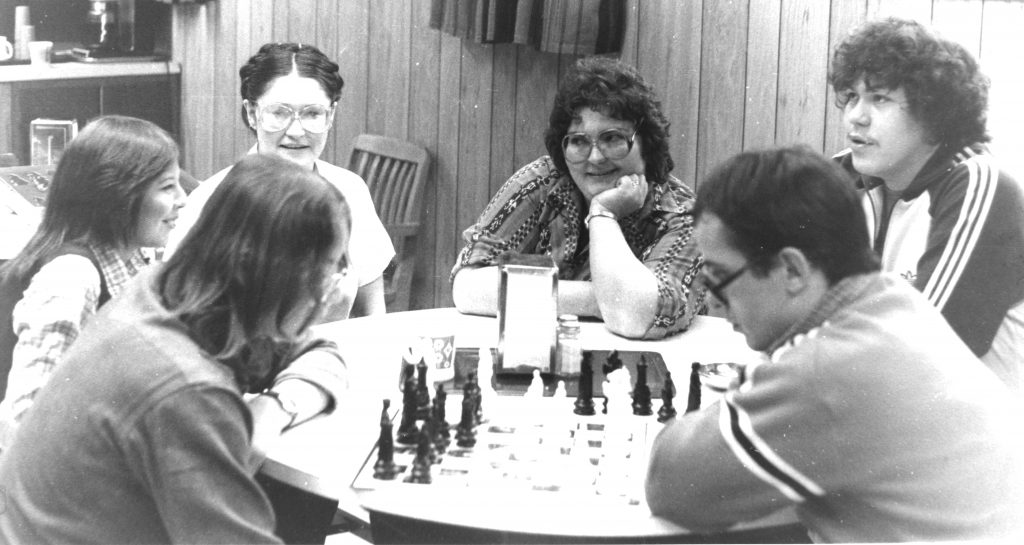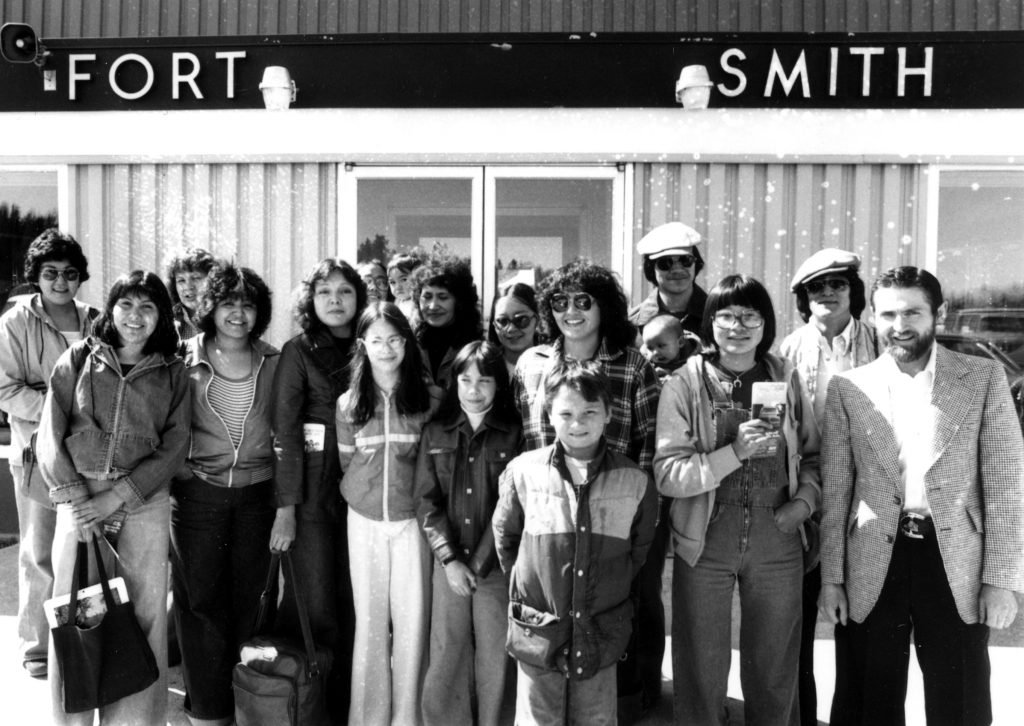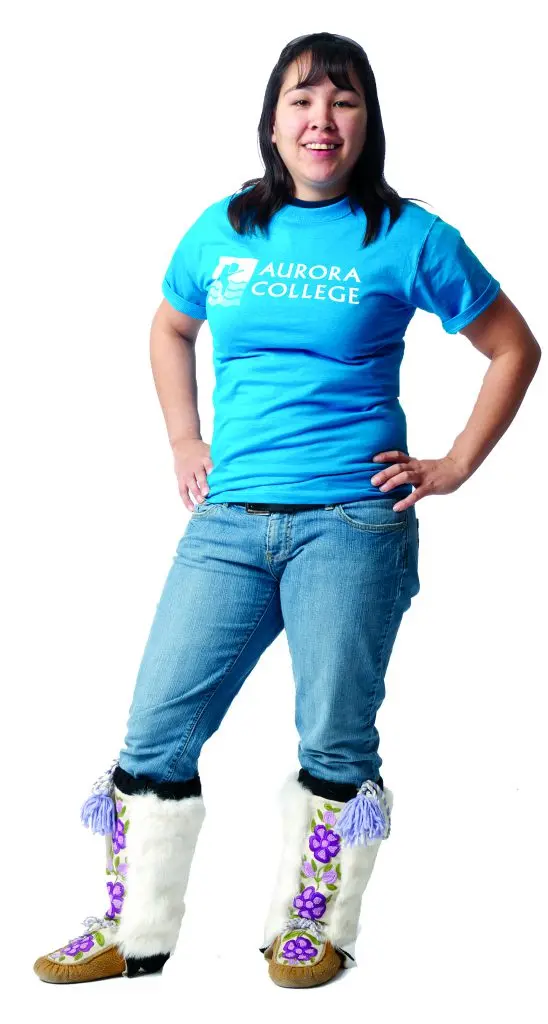Over 50 Years of Excellence in Education



Aurora College is the cornerstone of the NWT post-secondary education system. It operates three campuses and 21 Community Learning Centres in communities, both large and small, spread over more than 1.3 million square kilometres. Throughout its history, the College has changed as the Northwest Territories evolved from a jurisdiction run from Ottawa to an elected consensus-style territorial government with its own unique cultural and educational needs.
More than 50 years ago, in 1968, the Heavy Equipment Operator program was offered in Fort Smith. Following the introduction of a teacher education program later that year, the Adult Vocational Training Centre (AVTC) was created. Throughout the 1970s, both vocational and academic programming at AVTC grew. Trades training expanded to include Carpenter, Heavy Duty Equipment Technician and Housing Maintainer. In 1976, the College established its longest-standing partnership agreement, working with the University of Saskatchewan to create a formal transfer agreement for a Teacher Education Diploma Program. The transfer agreement meant students could use their diplomas as the first two years of a Bachelor of Education Degree. The College built upon its partnership with the University of Saskatchewan, expanding the two-year diploma in teacher education to a three-year diploma, and, in 2007, replacing that program with a Bachelor of Education Degree.
Programs such as Business Administration, Environment and Natural Resources Technology and Office Administration became mainstays. By the end of the 1970s, the institution had expanded beyond its vocational roots, and in 1981 the Honourable Dennis Patterson, Minister of Education, elevated the adult training centre in Fort Smith to a fully accredited college with a governing body. The new institution was called Thebacha College.
The next decade was a period of exciting expansion for the NWT College system. In 1986, the government passed an act creating Arctic College, which consisted of Thebacha Campus in Fort Smith, Kitikmeot Campus in Cambridge Bay and Nunatta Campus in Iqaluit. Between 1986 and 1989, additional campuses were created in Yellowknife, Inuvik, and Rankin Inlet. During the same time period, community adult education centres were transferred to the College from the GNWT Department of Education, creating a truly pan-territorial adult education system.
As the college system developed, a parallel series of developments occurred in the NWT science community. The Science Advisory Board was created in 1975 to advise the NWT government on matters relating to science and research. In 1984, the Science Advisory Board became the Science Institute of the NWT, with its head office in Yellowknife and major research centres in the communities of Inuvik and Igloolik.
In 1995, in anticipation of the division of the NWT into two territories, the government of the NWT created two college systems to serve the unique needs of each new territory. In the east, Nunavut Arctic College would help the people of Nunavut build a skilled public sector. In the west, Arctic College became Aurora College, which would serve the people of the new Northwest Territories, where training needs were increasingly driven by major industrial developments. At the same time, the GNWT integrated the Science Institute into the colleges, providing each with a research institute to serve its specific needs.
Aurora College continued to evolve as the needs of the NWT labour market changed. In response to a need for more nurses, the College established the Northern Nursing Diploma Program in 1994, which quickly established a national reputation for excellence. In recognition of the success of the diploma program and the quality of its students, the College developed a partnership with the University of Victoria to begin delivery of a Bachelor of Science in Nursing Degree in 2000.
In response to rapid growth in the NWT industrial sector, the College has developed and offered a number of programs that focus directly on preparing Northerners for employment in the mining and oil and gas sectors. Mineral Processing, Drill Rig Training, Pipeline Operations Training, Diamond Cutting and Polishing, Introduction to the Mining Industry, Underground Miner Training, Surface Miner Training and other related programs have been developed in consultation and partnership with Indigenous governments and industry, which ensured that programs have met the needs of both the people of the North and the labour market.
Today, Aurora College is changing to increase access to quality post-secondary education for all Northwest Territories residents and better meet the needs of the NWT labour market. In 2018, the Government of the Northwest Territories (GNWT) made a bold commitment to transform the College into a polytechnic university – that process is currently underway with a goal of launching the polytechnic university in 2025.
The transformation process is in its first of three phases, which is to strengthen our foundation and plan for change. You can follow our transformational phases and progress by clicking on the Transformation button in the main menu at the top of this page.
During our transformation we continue to serve the residents of the Territory with programming at three campuses and 19 community learning centres. At the same time we strive to meet the Government of the Northwest Territories’ vision for post-secondary education: That every resident of the Territory has an equitable opportunity to reach their full potential by obtaining a post-secondary education from institutions that are student centred, accessible, high quality, relevant and accountable.

